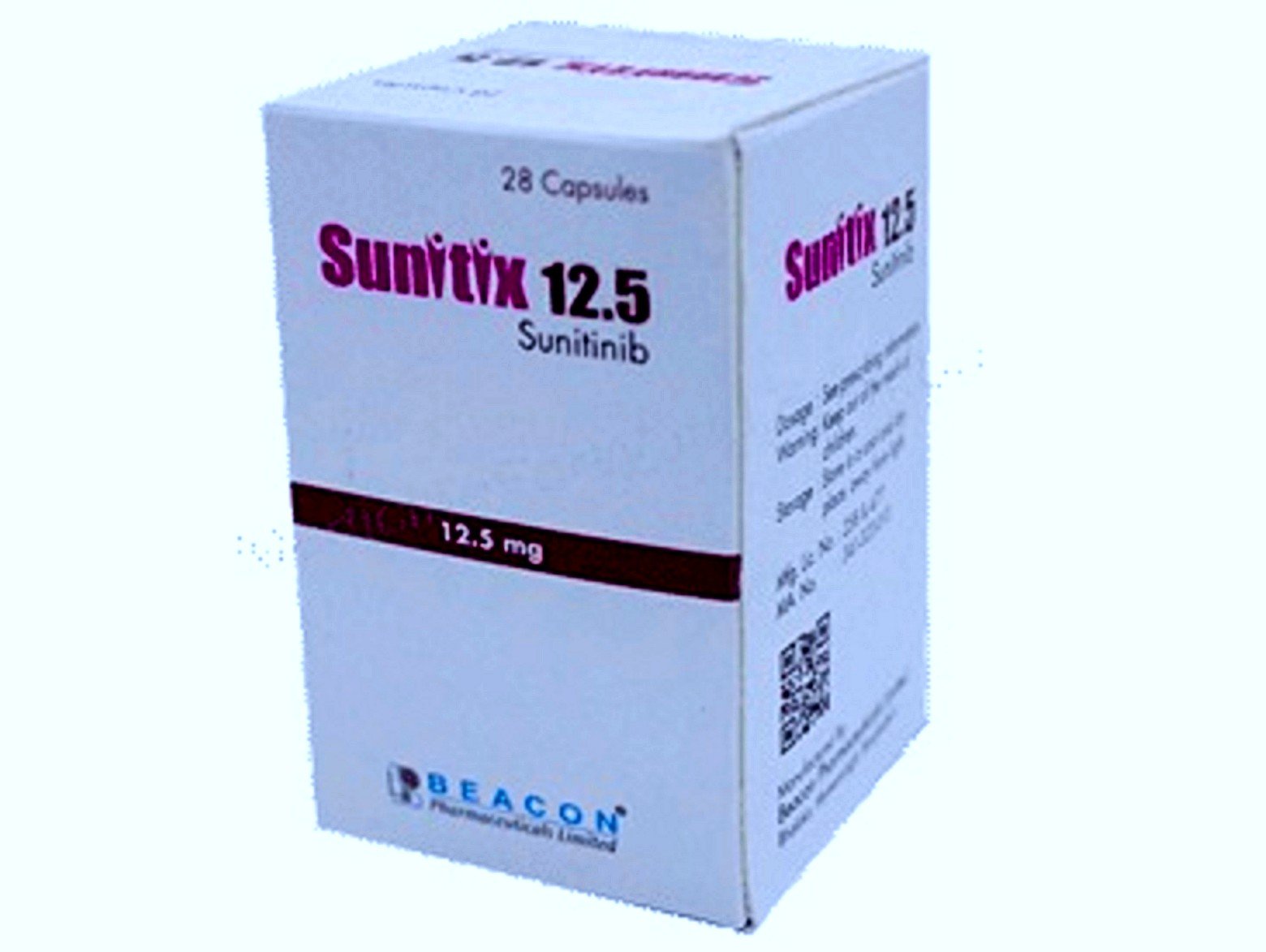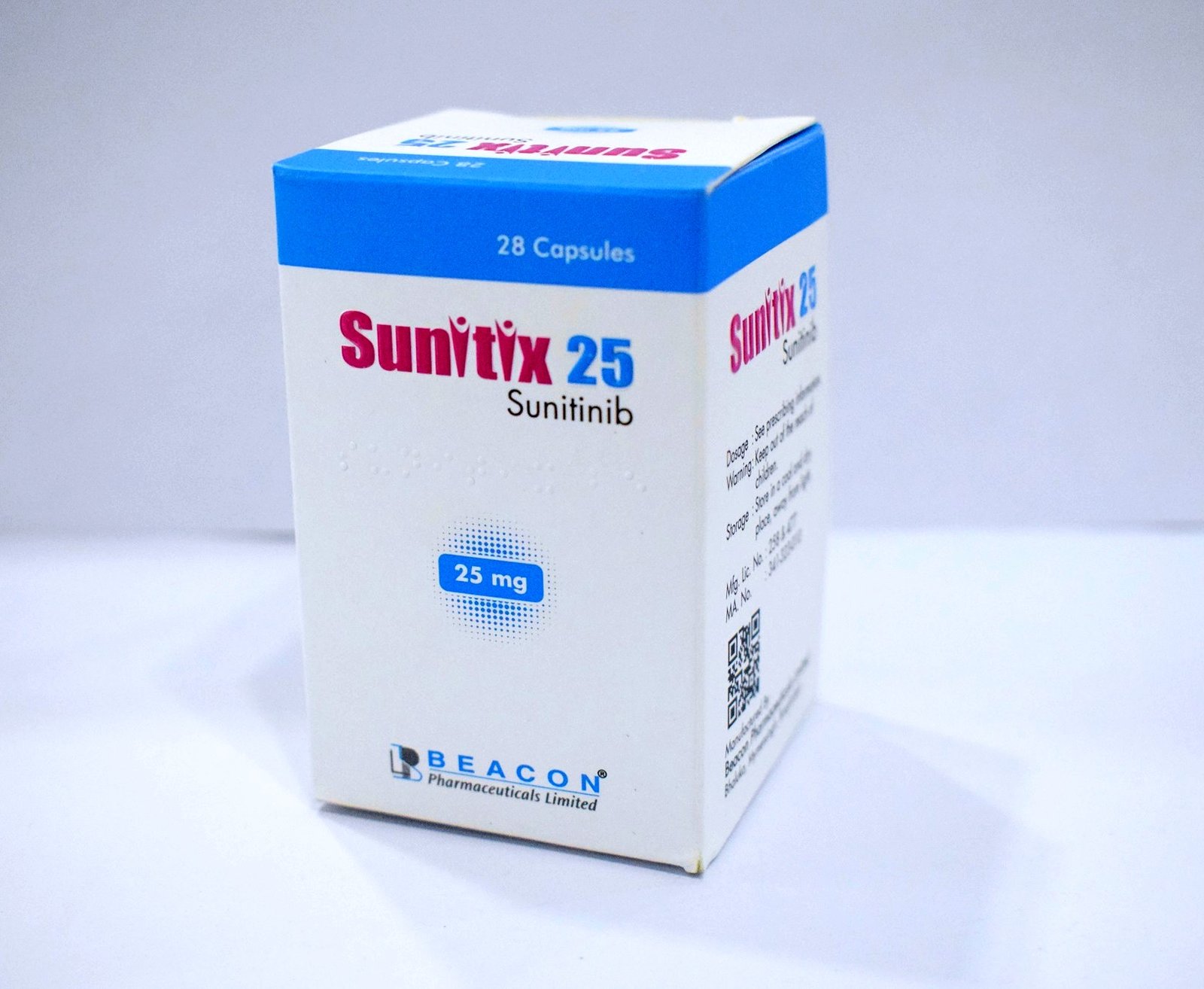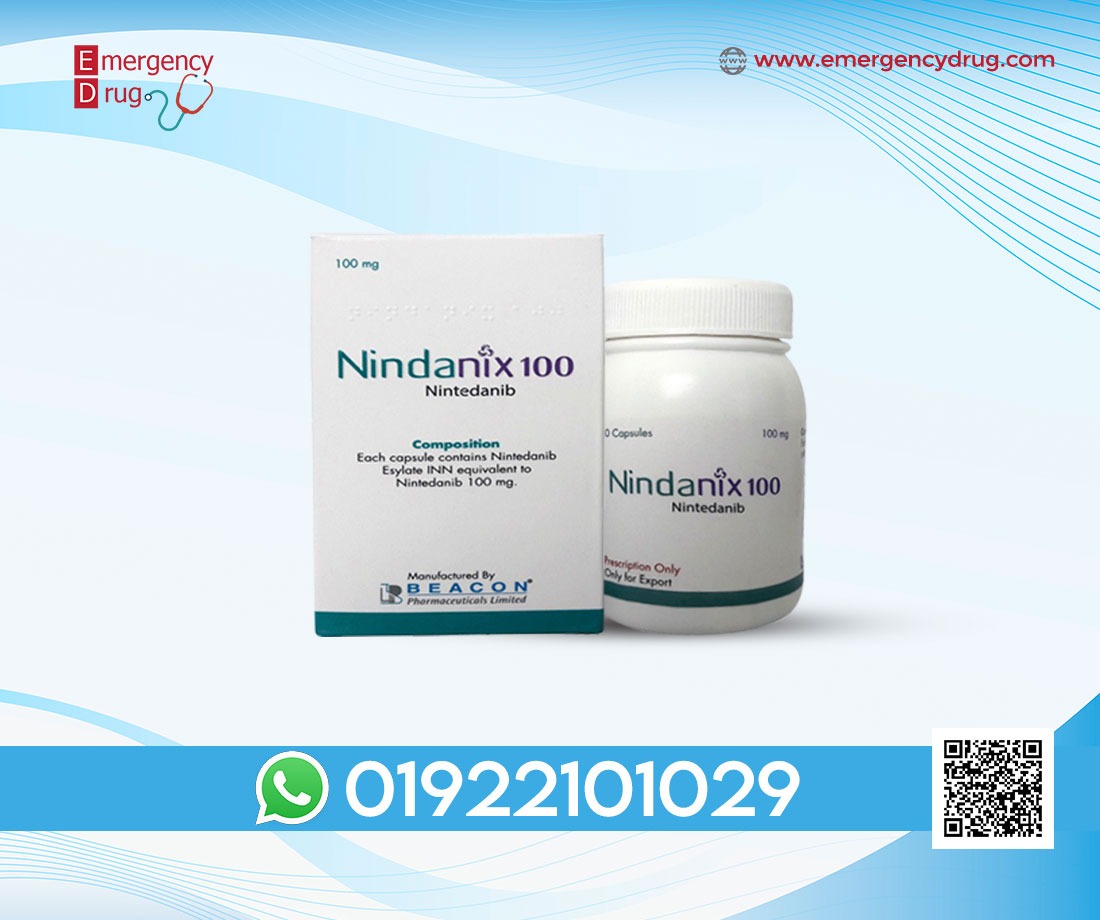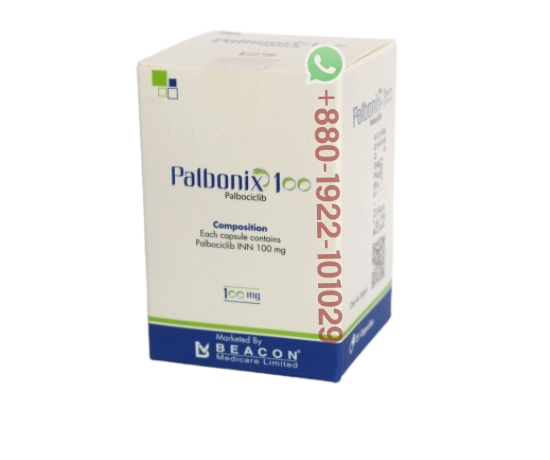
Sunitix (Sunitinib) 50 MG
Price: $215.00
Sunitix (Sunitinib) use to prevent gastrointestinal stromal tumors (GIST; a type of tumor that grows in the stomach, intestine (bowel), or esophagus (tube that connects the throat with the stomach) in man and women with tumors that were not treated successfully with imatinib (Gleevec) or people who cannot take imatinib. Sunitinib also use to treat advanced renal cell carcinoma (RCC, a type of cancer that begins in the cells of the kidneys). Sunitinib further also use to help prevent the return of RCC in people who have RCC that has not spread and have had a kidney removed. Sunitinib further more use to treat pancreatic neuroendocrine tumors (pNET, a type of tumor that begins in certain cells of the pancreas) in people with tumors that have worsened and cannot be treated with surgery.


Description
Sunitix (Sunitinib) 50mg Capsule is an anti-cancer medication. It works by blocking the action of the abnormal protein that signals cancer cells to multiply. This helps to stop or slow the spread of cancer cells.
Indications
Gastrointestinal Stromal Tumor (GIST): It indicates the treatment of gastrointestinal stromal tumor after disease progression on or intolerance to imatinib mesylate.
Advanced Renal Cell Carcinoma (RCC): This indicates the treatment of advanced renal cell carcinoma.
Advanced Pancreatic Neuroendocrine Tumors (pNET): Sunitix indicates the treatment of progressive, well-differentiated pancreatic neuroendocrine tumors in patients with unresectable locally advanced or metastatic disease.
Pharmacology
Sunitinib inhibits cellular signaling by targeting multiple receptor tyrosine kinases (RTKs).
These include all receptors for platelet-derived growth factors (PDGF-Rs) and vascular endothelial growth factor receptors (VEGFRs). Which play a role in both tumor angiogenesis and tumor cell proliferation. The simultaneous inhibition of these targets. Therefore reduces tumor vascularization and triggers cancer cell apoptosis and thus resulting in tumor shrinkage.
Sunitinib also inhibits CD117 (c-KIT), the receptor tyrosine kinase that (when improperly activated by mutation) drives the majority of gastrointestinal stromal cell tumors. It has been recommended as second-line therapy for patients whose tumors develop mutations in c-KIT that make them resistant to imatinib or who cannot tolerate the drug.
In addition, Sunitinib binds to other receptors. These include RET, CD114, and CD135. The fact that Sunitix targets many different receptors. It has many side effects, such as classic hand-foot syndrome, stomatitis, and other dermatologic toxicities.
Dosage & Administration
Recommended Dose For GIST And RCC: The recommended dose of medicine for gastrointestinal stromal tumor (GIST) and advanced renal cell carcinoma (RCC) is one 50 mg oral dose that needs to take once daily. On a schedule of 4 weeks on treatment followed by 2 weeks off (Schedule 4/2). Sunitix takes to with or without food.
Recommended Dose For pNET: The recommended dose of Capsule for pancreatic neuroendocrine tumors (pNET) is 37.5 mg taken orally once daily continuously without a scheduled off-treatment period.
Dose Modification: Dose interruption and/or dose modification in 12.5 mg increments or decrements recommend based on individual safety and tolerability. The maximum dose administered in the Phase 3 pNET study was 50 mg daily.
Alternate concomitant medication with no or minimal enzyme inhibition potential is recommended. A dose reduction to a minimum of 37.5 mg (GIST and RCC) or 25 mg (pNET). Daily consider as Sunitix must co-administer with a strong CYP3A4 inhibitor
Selection of an alternate concomitant medication with no or minimal enzyme induction potential recommend. A dose increase for Sunitix to a maximum of 87.5 mg (GIST and RCC) or 62.5 mg (pNET) daily considers if Sunitix must co-administer with a CYP3A4 inducer. If the dose increases, the patient monitors carefully for toxicity.
Interaction
Increased plasma cone with strong CYP3A4 inhibitors (eg, ketoconazole, ritonavir, itraconazole, erythromycin, clarithromycin, grapefruit juice). Decreased plasma cone with strong CYP3A4 inducers [eg, rifampin, dexamethasone, phenytoin, carbamazepine, phenobarb, St. John’s wort (Hypericum perforatum)]. Anticoagulants, eg, warfarin and acenocoumarol (periodically monitor platelets, prothrombin time/INR & physical exam).











Reviews
There are no reviews yet.